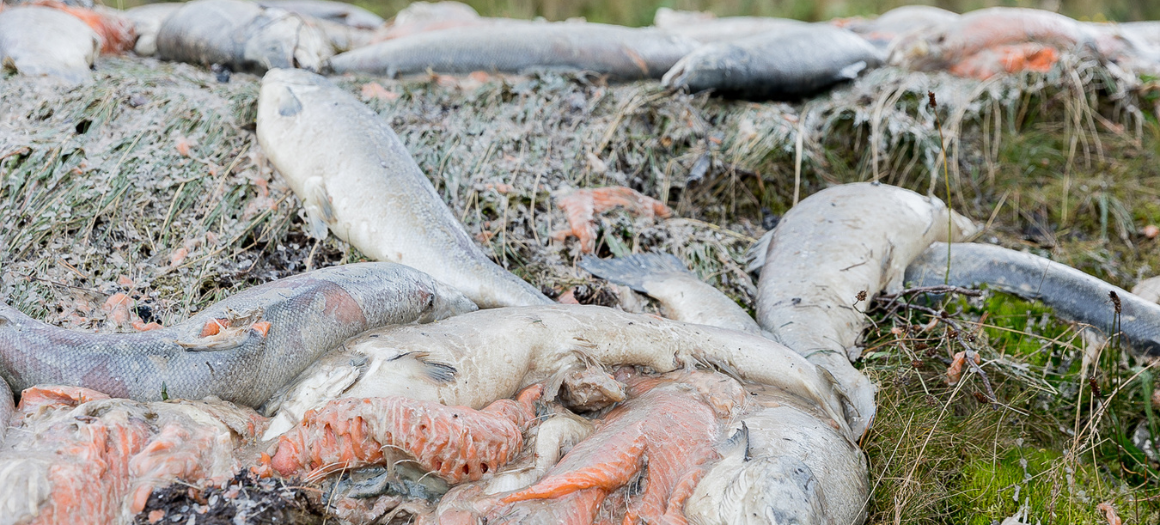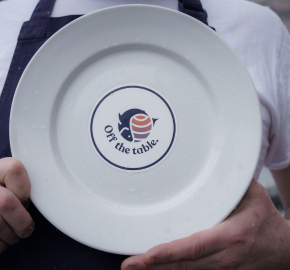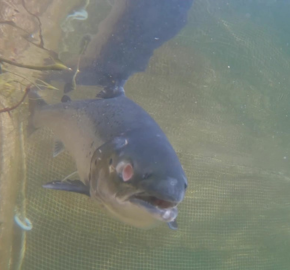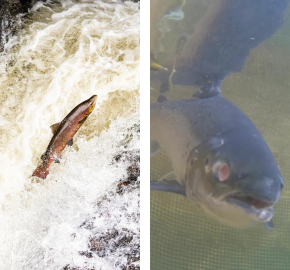High mortality on Scottish salmon farms reflects an environmental disaster

New figures published today by the Scottish Government show that Scottish salmon production in 2022 was almost a fifth (18%) lower than in 2021.
Last year, the industry reported a 2021 production volume of 205,393, the highest level recorded in Scotland and an increase of 7% on the previous year.
However, 2022 production volumes saw a fall of 18%, with a total production volume of 169,194 tonnes, despite putting near equal numbers of smolts to sea as in the previous year.
Rachel Mulrenan, Scotland Director at WildFish, said: “The considerable drop in farmed salmon production volume is not surprising, considering that 2022 was the deadliest year on record for Scottish salmon farms, with 16.7 million farmed salmon dying in the water.”
What is concerning is that this year is looking even worse than last, with 10.5 million deaths already reported from January to August; 2.7 million more than the same period last year.
Rachel Mulrenan
Scotland Director, WildFish
Increasing fish mortality on Scotland’s salmon farms is largely driven by a combination of disease and environmental conditions. Increasingly, fish are reported to be suffering from poor gill health, due to environmental issues, including jellyfish and plankton blooms, as well as parasitic, viral and bacterial infections.
Poor gill health has severe impacts on farmed salmon and can result in the death of hundreds of thousands of fish on one farm in a single week. It can also have profound consequences for wild salmon, as the condition limits a farm’s ability to treat fish for other issues, such as parasitic sea lice.
Fish with impaired gills are less likely to survive chemical and physical treatments; last year Bakkafrost’s East Tarbert Bay farm reported the death of 105,355 farmed salmon in the week following bath treatment for a parasitic infection. [1]
In the absence of treatment options, sea lice parasites can proliferate on farms. These parasites cause huge welfare issues for the farmed salmon, eating the fish alive, and can transfer to wild fish in the surrounding environment. For juvenile wild salmon and sea trout migrating to sea, these lice can be fatal.
Rachel continued: “High mortality on salmon farms reflects an environmental disaster, as well as being an animal welfare scandal – from high levels of sea lice, harming wild Atlantic salmon, to widespread disease; both of which require toxic chemical treatments, which can kill other sea life and degrade ecosystems around Scotland’s shores.
“This is yet another sign that open-net salmon farming is not a viable long-term industry for Scotland – and it’s high time the Scottish Government followed the lead of Iceland, Washington and others, and moved away from this inherently unsustainable production system; for the health of the farmed fish, wild fish and our environment.”
Published annually by the Scottish Government, the Scottish Fish Farm Production Survey is based on data collected and reported by the Scottish salmon and trout farming industry.
[1] https://www.gov.scot/publications/fish-health-inspectorate-mortality-information/



